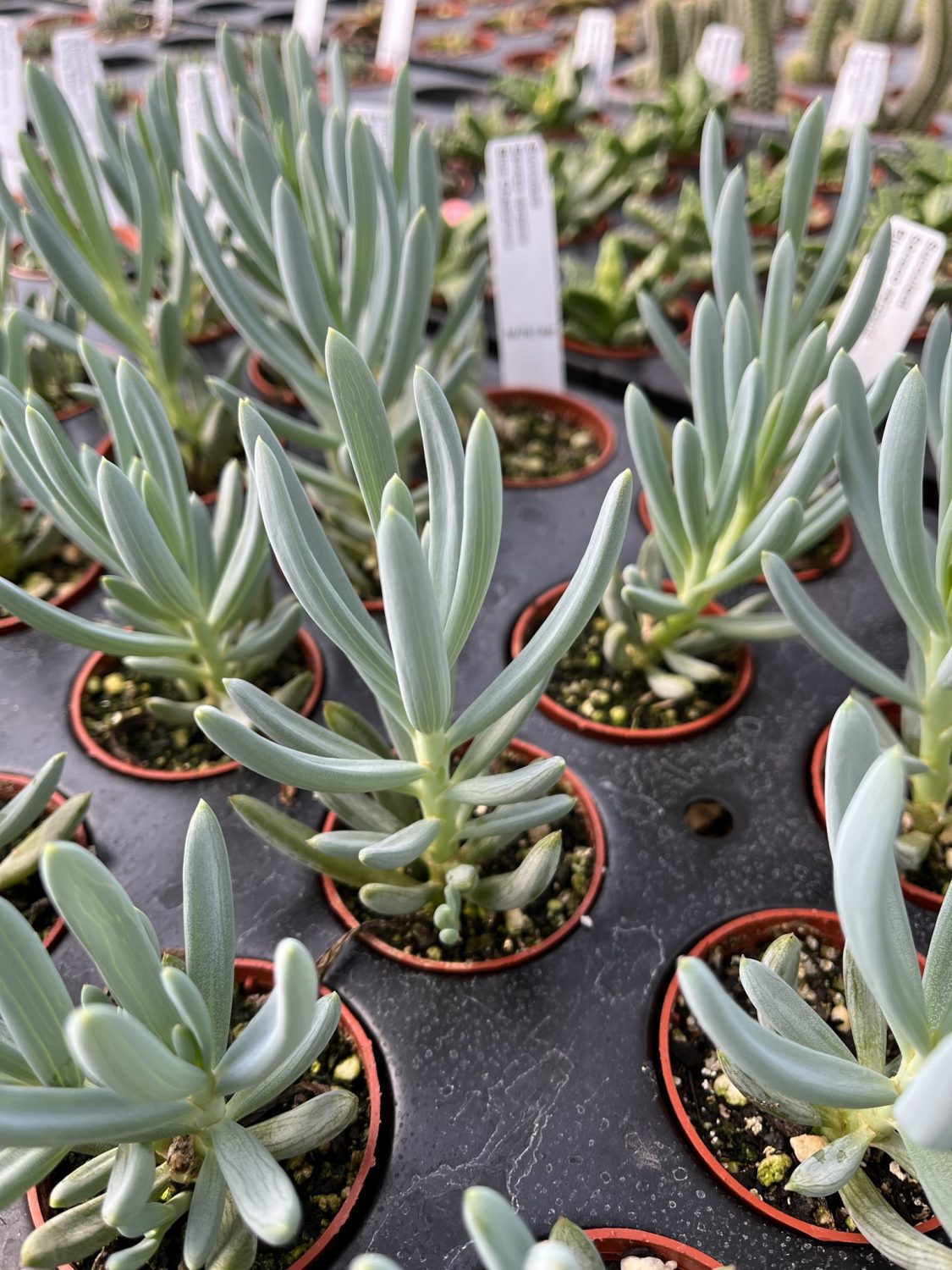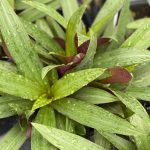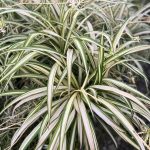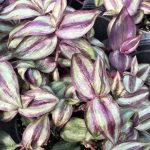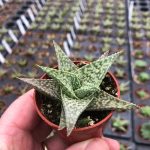Senecio serpens, Blue Chalksticks
Price range: $5.99 through $12.99
Discount per quantity
| Quantity | 3 - 8 | 9 - 14 | 15+ |
|---|---|---|---|
| Price | Price range: $5.81 through $12.60 | Price range: $5.63 through $12.21 | Price range: $5.39 through $11.69 |
| % Discount | 3% | 6% | 10% |
Description
Blue Chalksticks: A Friendly Guide to Growing Senecio serpens
A Cool Splash of Silver-Blue
Picture a winding path lined with frosty blue fingers that almost glow under the sun. That is the magic of Blue Chalksticks, Senecio serpens. This small, spreading succulent looks like someone dipped slender chalk sticks in silver paint and planted them at playful angles. Its color pops against warm stones, sandy soil, and terracotta pots. More than anything, it offers us a sense of calm. When you plant Blue Chalksticks, you invite a soft, seaside mood into your space.
Where Blue Chalksticks Comes From
Native to the dry hills of South Africa, Senecio serpens thrives in places that see brief, gentle rain followed by long, bright days. Over time, it learned to store water in its plump leaves. Instead of growing tall, it spreads out, hugging the ground and forming dense mats. In other words, this plant is not simply drought-tolerant; it is drought-smart. Each leaf is a water tank wearing a cool coat to shield it from sun and wind.
Why We Reach for This Plant
- We want color that never fades. Blue Chalksticks keeps its powder-blue tone all year.
- We need a groundcover that does not beg for attention. Once settled, it minds its own water needs.
- We love texture. Those upright fingers give beds, borders, and pots a modern edge.
- We look for contrast. Paired with warm reds, sunny yellows, or deep greens, its icy hue steals the scene without shouting.
- We crave plants that forgive our busy days. Missed a watering? No problem. Surprise heat wave? Still smiling.
Let’s Talk Style
Blue Chalksticks fits many design dreams:
- Rock gardens – Nestle stems between boulders for a desert vibe.
- Coastal themes – Combine with grasses and driftwood to echo salty breezes.
- Modern pots – A single clump in a matte black planter looks like living sculpture.
- Fairy landscapes – Miniature chalk forests invite playful stories.
- Living roofs and walls – Light weight and shallow roots make this plant a green-roof friend.
Picking the Perfect Spot
Sun is the secret. Give your Blue Chalksticks at least six hours of bright light each day. A south-facing bed or a sunny windowsill works wonders. Too little sun leads to stretched, pale stems that flop instead of standing tall. After more than a week in low light you may see leaves turn green rather than blue. Move the pot, and the color returns.
Outdoor Light
- Full sun is best in cool to mild climates.
- Morning sun and afternoon shade protect plants in scorching summers.
- Filtered light through lattice or a high canopy also works, but keep an eye on color.
Indoor Light
- Place the pot close to the brightest window.
- Rotate every two weeks so all sides meet the light evenly.
- If you cannot meet the six-hour rule, add a small grow light. It keeps the blue bold.
Soil: Fast Draining Is Key
Imagine rainwater racing through sandy banks after a storm. That is what Blue Chalksticks roots expect. Heavy, wet soil can spell rot in just a few days. Instead of plain potting mix, create a gritty blend:
- 1 part cactus or succulent soil
- 1 part coarse sand or perlite
- A sprinkle of crushed gravel for extra gaps
When planting in the ground, mound soil on small berms. Extra height means excess water slides away instead of pooling at the crown.
Potting Like a Pro
- Choose a clay or ceramic pot with drainage holes. Plastic holds moisture longer, and that slows drying.
- Cover the holes with a piece of mesh or a coffee filter so soil stays in place while water slips out.
- Fill the pot two-thirds full with your gritty mix.
- Gently tease roots if they circle the nursery pot.
- Set the plant so the crown is level with the soil top.
- Backfill and press lightly.
- Do not water right away. Instead, wait three days. This pause lets tiny root breaks seal before they face moisture.
Watering Wisdom
Here’s the golden rule: water deeply, then wait for the soil to dry all the way through.
- Finger test – Stick your finger down to the second knuckle. If you feel any cool dampness, wait.
- Season shift – During spring and summer, you may water every 10-14 days. When winter arrives, stretch the gap to 3–4 weeks.
- Pot size matters – Small pots dry faster; big pots hold water longer. Adjust your schedule instead of sticking to the calendar.
- Never mist – Moisture trapped in leaf crevices invites rot and mildew.
Feeding for Steady Growth
Blue Chalksticks is not a heavy feeder. Too much fertilizer can cause soft, floppy shoots.
- Apply a half-strength, balanced liquid cactus food at the start of spring.
- Feed again in midsummer and stop.
- Instead of chemical fertilizer, you can top-dress with a thin layer of worm castings. Nutrients seep in slowly with each watering.
Temperature and Climate
- Ideal range – 65-80 °F (18-27 °C).
- Tolerates heat – Up to 100 °F (38 °C) if shaded in late afternoon.
- Handles brief cold – Down to 20 °F (-6 °C) for short nights when soil is dry.
- Frost alert – Repeated freezes can scar or kill stems. In frosty regions, grow in pots and bring them under cover before night temps drop below 32 °F (0 °C).
- Humidity – Lower is better. Humid air plus cool nights encourages fungal spots.
Pruning and Shaping
Over time, stems can sprawl and become woody. Light pruning keeps the cushion tidy.
- Use clean, sharp scissors.
- Cut stems back by one-third in early spring.
- Remove any brown, shriveled leaves right away.
- Save healthy tip cuttings for propagation (more on that soon).
- After pruning, let cuts dry for 48 hours before watering to prevent rot.
Propagation: Multiply the Fun
Sharing Blue Chalksticks is joyful and simple.
Stem Cuttings
- Snip a 3–4-inch tip during warm weather.
- Lay the cutting in a bright spot for two days so the end calluses.
- Stick the dry end into moist, gritty soil, burying one inch.
- Place in bright light, water lightly, and wait. Roots form in two weeks.
Division
Older clumps often form natural clumps that pull apart easily. Gently pry them apart and replant each section.
Leaf Cuttings
Less common but possible. Twist off a fat leaf, let it dry, and place the end on top of damp soil. Tiny pups sprout where the leaf meets the mix. Patience is key here; it takes a month for visible roots.
Pests and Problems to Watch
Even rugged plants have a few foes.
- Mealybugs – White, cottony clusters in leaf joints. Dab with alcohol on a cotton swab.
- Scale insects – Brown bumps along stems. Scrape gently and treat with neem oil.
- Root rot – Mushy stems, black roots, sour smell. Remove affected parts, cut back watering, and repot in fresher, drier mix.
- Sun scorch – Brown, crispy patches on leaves. This happens when a shade-grown plant suddenly meets intense sun. Move it gradually.
Instead of worrying, inspect your plant every week. Early signs are easy to fix. After more than a few walk-throughs, you will spot trouble even sooner.
Seasonal Rhythm: A Year-Round Care Calendar
Spring
- Increase water as days lengthen.
- Feed lightly.
- Prune and propagate.
- Repot if the roots circle the pot edge.
Summer
- Water when soil is bone-dry.
- Provide afternoon shade in heat waves.
- Enjoy the fastest growth of the year.
Autumn
- Begin to reduce watering.
- Move pots away from heavy rain.
- Remove fallen leaves or debris.
Winter
- Keep soil almost dry.
- Bring pots indoors or under cover if frost is forecast.
- Do not feed. Rest is healthy.
Pairing Blue Chalksticks With Friends
Variety brings gardens to life. Try these companion ideas:
- Golden Sedum – Its bright yellow stars highlight the cool blue tones.
- Purple Heart (Tradescantia pallida) – Deep violet leaves offer bold contrast.
- Echeveria ‘Lola’ – Rosettes echo the silver sheen in softer shapes.
- Red creeping thyme – Fine, low foliage weaves between chalk stems, adding scent.
- Agave parryi – Spiky, architectural leaves frame the shorter chalk forest.
Instead of planting one large block of Blue Chalksticks, create ribbons that weave through these companions. The eye moves along the sinuous lines, exploring color stories along the way.
Creative Displays Indoors
Blue Chalksticks can thrive inside if you mimic its sunny homeland.
- Table terrariums – Choose an open bowl rather than a closed jar. Airflow is vital.
- Desk duo – Pair a small chalk plant with a smooth rock for a calming scene.
- Shelf edge cascade – Let stems spill over a tall container to soften straight lines.
- Window trough – Mix chalksticks with pink kalanchoes for cheerful contrast.
Remember, light is king. Without it, these displays dull and stretch. Let’s give them bright seats by the window.
Frequently Asked Questions
Can I grow Blue Chalksticks from seed?
Yes, but seeds can be slow and fussy. Cuttings are faster and match the parent plant.
Why are my leaves turning green?
Likely not enough light. Move to a sunnier spot and color should return within a month.
Do I need to remove flowers?
The plant sometimes sends up small white blooms in summer. They are modest and quickly fade. Pinch them off if you prefer tidy lines. Leaving them does no harm.
Is it safe around pets?
Senecio serpens sap can upset pets if eaten. Place pots out of reach or choose other plants in homes with nibbling cats and dogs.
How fast does it spread?
In warm seasons, stems can extend a foot in a year. Regular pruning keeps growth compact.
Growing With Care and Confidence
We have walked through every step, from light levels to leaf pests. You can now picture the plant’s needs before you even pick up a trowel. But most of all, we hope you feel eager. Blue Chalksticks invites experimentation. Try new pot shapes. Test new pairings. Watch it glow under the morning sun. And if a stem breaks, smile—because that broken piece can start a brand-new patch.
Embrace the Cool Hues Ahead
Additional information
| Weight | N/A |
|---|---|
| Options | 2 in. (3 fl.oz.) Pot, 4 in. (16.9 fl. oz.) Pot |

